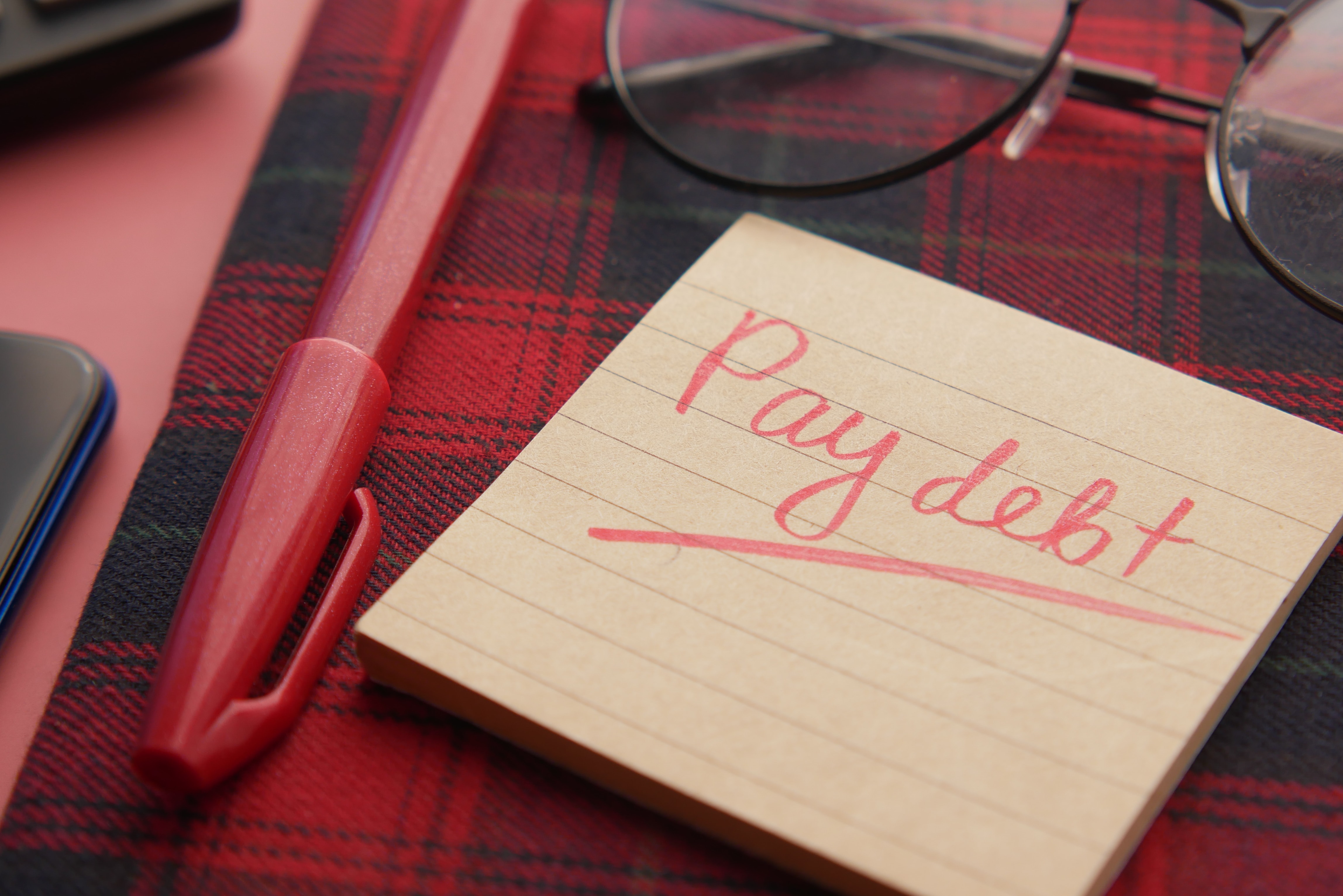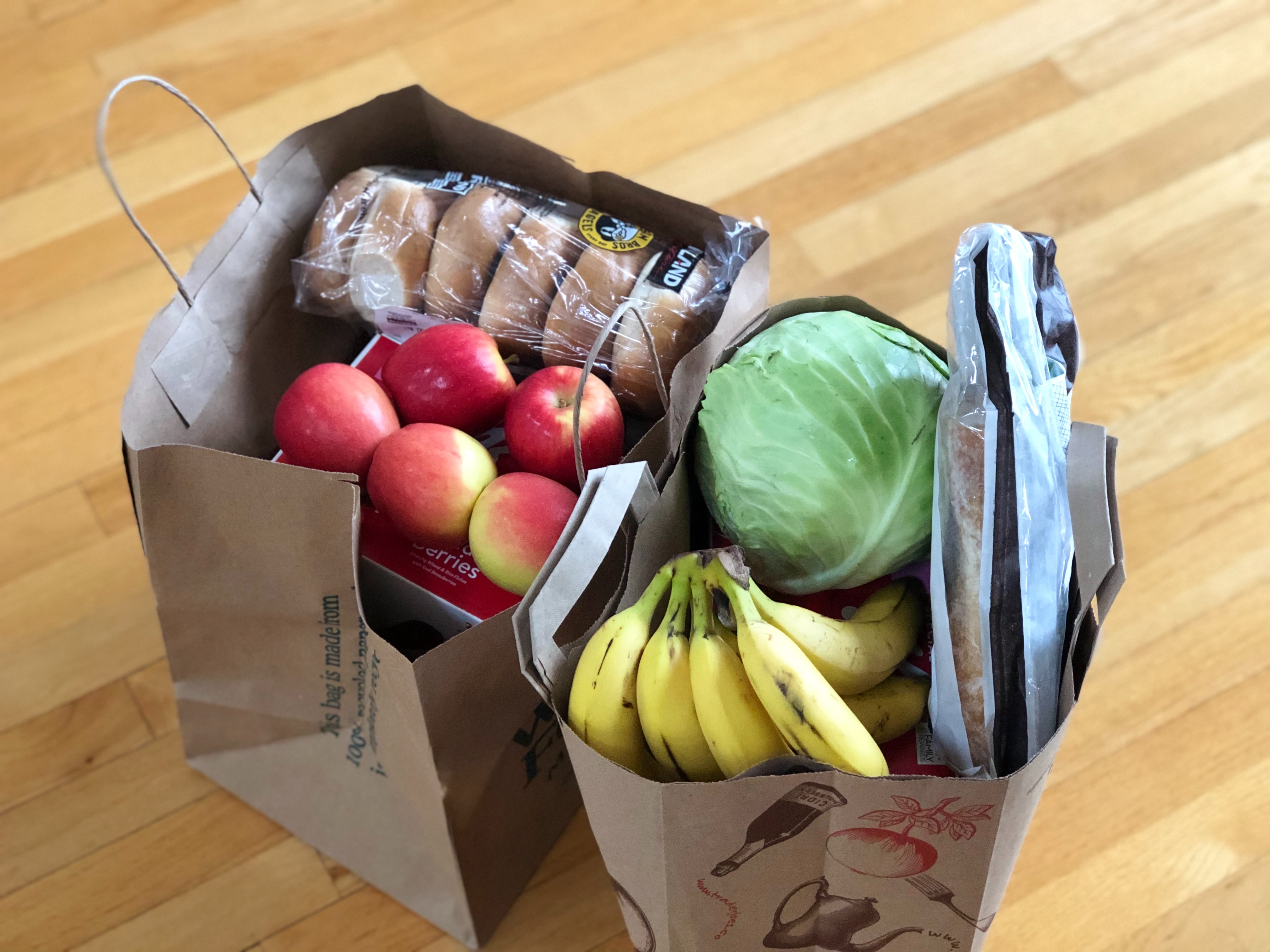Virginia Debt Relief: All of Your Routes to Clearing Debts
It's no secret that debt can be a real downer. But fear not, my friends, because Virginia debt relief is here to rescue you from the clutches of financial stress. Whether you're dealing with credit card debt, student loans, or medical bills, we've got the tips, tricks, and expert advice you need to turn your financial frown upside down. In this blog, we'll explore everything from debt consolidation to debt settlement, bankruptcy options to credit counseling, and much more! So, sit back, relax, and let us help you navigate the world of Virginia debt relief like a pro.

Table of Contents
- Debt Statistics in Virginia
- Government Debt Relief Programs in Virginia
- Does Virginia Have a Law to Protect Debt Holders?
- What is the Statute of Limitations on Debt Collection in Virginia?
- What Are Some Available Virginia Debt Management Programs?
- How Does a Debt Relief Program Work?
- When Should You Use a Debt Relief Program?
- Hardship Relief Programs in Virginia
- Food Assistance Programs in Virginia
- Housing Assistance Programs in Virginia
- How Everything Home Owner Can Help with Debt Relief in Virginia
Debt Statistics in Virginia
Virginia, known as the Old Dominion, is a state rich in history, natural beauty, and a robust economy. When it comes to the cost of living, Virginia falls slightly above the national average. According to recent data, the cost of living in Virginia is approximately 6% higher than the national average. While this may be slightly higher, Virginia residents also benefit from higher average salaries.
Average Salary in Virginia
Speaking of salaries, the average income for Virginia residents is $70,407 per year. This is higher than the national average income, which stands at $68,703. This higher average income helps Virginians manage their expenses and live comfortably.
Average Indebtedness of Virginians
Now, let's talk about debt. It's important to note that debt is a common aspect of many people's lives, and Virginians are no exception. When compared to the rest of the country, Virginia residents hold a slightly higher amount of debt. The average debt per resident in Virginia is approximately $122,273 in 2021 (according to First Republic), compared to the national average of $96,361. However, it's crucial to understand the breakdown of this debt.
Types of Debt Held by Virginians
The primary type of debt that Virginia residents hold is mortgage debt, with approximately 68.90% of residents having a mortgage. This is not surprising, considering the state's real estate market and the desire to own a home. The remaining debt is spread across various categories such as student loans, credit card debt, auto loans, and personal loans.
To provide a more detailed breakdown, let's take a look at an average percentage breakdown of the debt held by Virginia residents:
- Mortgage Debt: 70%
- Student Loan Debt: 15%
- Credit Card Debt: 8%
- Auto Loan Debt: 5%
- Other Debt (Personal Loans, Medical Debt, etc.): 2%
These statistics provide a snapshot of the debt landscape in Virginia. While the average debt may be slightly higher, it's important to remember that debt is manageable, and there are resources available to help individuals who may be struggling. Virginia debt relief programs, for example, can provide assistance to those looking to reduce or eliminate their debt burden.

Government Debt Relief Programs in Virginia
Debt relief programs are designed to help individuals and businesses manage their financial obligations and find a way to become debt-free. In Virginia, there are several types of government debt relief programs available, each with its own set of qualifications. Let's take a closer look at each program:
1. Debt Consolidation Programs
Debt consolidation programs in Virginia aim to simplify the repayment process by combining multiple debts into a single loan with a lower interest rate. To qualify for a debt consolidation program, individuals typically need to have a steady source of income and a minimum debt amount. They may also need to meet certain credit score requirements.
2. Debt Settlement Programs
Debt settlement programs negotiate with creditors on behalf of individuals to reduce the total amount of debt owed. To qualify for a debt settlement program in Virginia, individuals usually need to demonstrate financial hardship and have a significant amount of unsecured debt. They may also be required to stop making payments to their creditors during the negotiation process.
3. Bankruptcy
Bankruptcy is a legal process that allows individuals and businesses to eliminate or repay their debts under court supervision. In Virginia, individuals can file for either Chapter 7 or Chapter 13 bankruptcy. To qualify for Chapter 7 bankruptcy, individuals need to meet certain income requirements, whereas Chapter 13 bankruptcy requires individuals to have a stable source of income to create a repayment plan.
4. Virginia Debt Relief Grants
The state of Virginia offers debt relief grants to individuals and families facing financial hardship. These grants are typically available for specific purposes, such as medical expenses, housing assistance, or education. To qualify for a debt relief grant in Virginia, individuals usually need to meet specific income and residency requirements, and they may need to provide documentation supporting their financial needs.
5. Student Loan Forgiveness Programs
Virginia offers various student loan forgiveness programs to help individuals reduce or eliminate their student loan debt. These programs are typically targeted towards individuals working in specific professions, such as education, healthcare, or public service. Qualification requirements can vary depending on the specific program but commonly include criteria such as employment in a qualifying field for a certain number of years and making consistent payments.
It's important to note that each debt relief program in Virginia has its own eligibility criteria and requirements. Individuals seeking assistance should carefully review the qualifications for each program and consult with a professional to determine the best option for their specific situation. By taking advantage of these government debt relief programs, individuals and businesses in Virginia can find the support they need to overcome their financial challenges and start on the path toward a debt-free future.
Related Reading
• Washington Debt Relief• Debt Relief California
• Virginia Debt Relief
• Florida Debt Relief
• Texas Debt Relief
• New York Debt Relief
• New Jersey Debt Relief
Does Virginia Have a Law to Protect Debt Holders?
The criminal statute in the Virginia Code, specifically Virginia Code Ann. § 18.2-213, plays an important role in protecting and aiding individuals struggling with debt. This statute states that any person who knowingly delivers, mails, sends, or otherwise uses any paper or writing that simulates or intends to simulate various legal documents, such as warrants, processes, writs, notices of execution, liens, or notices of motion for judgment, for the purpose of collecting money, is guilty of a Class 4 misdemeanor and can be fined up to $250.
How This Law Protects Debtors & Consumers
This policy serves as a safeguard against deceptive and misleading practices by debt collectors. Prohibiting the use of fraudulent or simulated legal documents, it prevents individuals from being coerced or misled into paying debts they may not owe or that have already been resolved. This statute ensures that debt collection activities are conducted in a fair and transparent manner, protecting vulnerable individuals from abusive practices.

The policy also aids people with debt by providing them with legal recourse in case they encounter fraudulent or deceptive debt collection practices. If individuals believe they have been targeted with simulated legal documents, they can report the incident to the appropriate authorities, who can then investigate and take appropriate action. This gives individuals a means to defend themselves against unfair debt collection practices and seek justice.
How Federal Debt Collection Laws Compliment the Virginia Code
The Fair Debt Collection Practices Act (FDCPA) and the Virginia Law work hand in hand to protect consumers and debt holders from creditors who may resort to unethical and misleading practices. While the Virginia Law specifically addresses the crime of debt collectors sending documents that simulate the legal process, the FDCPA amplifies these protections on a broader scale.
The FDCPA is a federal law that sets guidelines for how debt collectors can interact with consumers. It aims to prevent abusive, unfair, and deceptive practices in the collection of debts. By doing so, it helps level the playing field between debtors and creditors, ensuring that consumers are treated fairly and given the information they need to make informed decisions.
In the case of the Virginia Law that makes it a crime for debt collectors to send documents simulating the legal process, the FDCPA complements it by providing additional safeguards. The FDCPA requires debt collectors to provide clear and accurate information about the debt, including the amount owed, the identity of the original creditor, and the debtor's rights. This reduces the potential for confusion and deception that could arise from documents that simulate the legal process.
The FDCPA prohibits debt collectors from engaging in harassing or oppressive tactics. This means they cannot use threats, intimidation, or excessive communication to pressure debtors into paying. By having these protections in place, consumers in Virginia can feel more confident in their rights and not be subjected to undue stress or harassment from debt collectors.
The FDCPA also gives consumers the right to dispute a debt and request validation from debt collectors. This ensures that debtors have the opportunity to verify the accuracy of the debt and have the ability to challenge any errors. This provision aligns with the Virginia Law's objective to protect consumers from being misled by documents that could potentially simulate the legal process.
What is the Statute of Limitations on Debt Collection in Virginia?
In Virginia, there is a statute of limitations for consumer debt of five years. This means that creditors have a window of five years from the time a debt becomes delinquent to take legal action and collect the outstanding amount. This statute of limitations is in place to provide a reasonable timeframe for creditors to pursue their claims, while also protecting consumers from endless debt collection efforts.
During this five-year period, debt collectors can try to collect the outstanding debt in a number of ways. They may contact the debtor through phone calls, letters, or even in person. They can negotiate payment terms or offer settlement options to try and recover the debt. However, it's important for consumers to be aware of their rights and to understand what actions are legally permissible during the debt collection process.
Debt collectors can also take legal action within the five-year statute of limitations. If they decide to pursue legal recourse, they can file a lawsuit against the debtor. Once a lawsuit is filed, the debtor will receive a summons and must respond within a certain timeframe. If the debtor fails to respond, the court may issue a default judgment in favor of the creditor.

Statute of Limitations on Debt for Oral Contracts in Virginia
It's worth noting that the three-year statute of limitations on debt collections applies specifically to oral contracts in Virginia. This means that if a debt arises from an agreement that was made orally, the creditor has three years from the date the debt became delinquent to take legal action to collect it. This shorter timeframe is in place to account for the difficulty in proving the terms and conditions of an oral contract.
In conclusion, the statute of limitations for consumer debt in Virginia is five years. During this time, debt collectors can try to collect the outstanding amount and take legal action if necessary. The three-year statute of limitations applies specifically to debt collections arising from oral contracts. It's important for consumers to be aware of their rights and to seek professional advice if they are facing debt collection efforts.
What Are Some Available Virginia Debt Management Programs?
If you're a resident of Virginia who is struggling with debt, you're not alone. Fortunately, the government of Virginia offers several debt management programs that are completely free for all consumers. These programs are designed to provide much-needed relief and support to individuals who are overwhelmed by their financial obligations. Let's take a look at some of these programs and how they specifically help consumers in their journey towards debt relief.
Debt Management Services Program
One notable government-run debt management program in Virginia is the Debt Management Services Program. This program helps consumers by providing them with personalized debt management plans. These plans are tailored to the individual's specific financial situation and are designed to help them pay off their debts in a manageable and structured way. The program negotiates with creditors on behalf of the consumer to potentially reduce interest rates and fees, making it easier for them to make payments and become debt-free.
Consumer Credit Counseling Services
Another valuable resource for debt relief in Virginia is the Consumer Credit Counseling Services (CCCS). This program offers free credit counseling services to consumers, helping them develop a solid understanding of their financial situation and providing them with guidance on how to manage their debts effectively. CCCS can also negotiate with creditors to potentially lower interest rates and eliminate late fees, making it easier for consumers to pay off their debts in a timely manner.
Virginia Rent & Mortgage Relief Program
The Virginia Department of Housing and Community Development also offers a debt management program called the Virginia Rent and Mortgage Relief Program (RMRP). While RMRP primarily focuses on providing financial assistance for rent and mortgage payments, it also offers support for individuals struggling with other types of debt. The program can help consumers negotiate with creditors, develop repayment plans, and provide financial counseling to help them regain control over their finances.
Comprehensive Services Act
The Virginia Department of Social Services offers the Comprehensive Services Act (CSA), which assists families with children who have serious emotional, behavioral, or mental health needs. While CSA is not specifically a debt management program, it can provide support to individuals and families struggling with debt by addressing the underlying issues that may have contributed to their financial difficulties.
These are just a few examples of the many government-run debt management programs available in Virginia. Each program is dedicated to helping consumers in their journey towards debt relief by providing personalized assistance and support. If you're facing overwhelming debt, I would highly recommend exploring these programs and reaching out to the relevant organizations to see how they can help you regain control over your finances. Remember, you're not alone, and there are resources available to support you on your path to financial freedom.
Related Reading
• Pennsylvania Debt Relief• Wisconsin Debt Relief
• Arizona Debt Relief
• Maryland Debt Relief
• Massachusetts Debt Relief
• Illinois Debt Relief
• Michigan Debt Relief
How Does a Debt Relief Program Work?
Debt can often feel overwhelming, but there are solutions available to help individuals regain control of their finances. One such solution is a debt relief program, which is designed to help individuals reduce or eliminate their debt through negotiations with creditors.
Assessment
Typically, a debt relief program begins with a thorough assessment of the individual's financial situation. This includes gathering information about their debts, income, and expenses. Once this information is collected, a debt relief specialist will analyze it to create a personalized plan.
Negotiate with Creditors
The first step in a debt relief program is usually to negotiate with creditors to reduce the total amount owed. This can involve negotiating lower interest rates, waiving fees, or even reducing the principal balance. These negotiations are aimed at making the debt more manageable for the individual.
Make Payments to a Savings Account
Once the negotiations are complete, the individual will make regular payments to a designated account instead of directly to the creditors. This account is used to accumulate funds that will be used to pay off the reduced debt amount. The debt relief specialist will work with the individual to establish a realistic payment plan that fits their budget.

Special Considerations
As for specific circumstances that may cause the steps in a debt relief program to change, it really depends on the individual's financial situation. For example, if someone has a high income and can afford to make larger monthly payments, they may be able to complete the program faster. On the other hand, someone with a lower income may need a longer payment plan to make their payments more manageable.
Additionally, the types of debt an individual has can also impact the steps in a debt relief program. For instance, secured debts like mortgages or car loans may require a different approach compared to unsecured debts like credit card debt or medical bills.
One Way that Debt Collection Differs in Virginia
Virginia has specific exemptions that protect certain assets from being seized to repay debt, especially in the case of bankruptcy proceedings. Here are the asset seizure exemptions that Virginia enforces for Chapter 7 bankruptcy filings:
- Up to $25,000 in value of a primary residence (known as a homestead exemption)
- A personal vehicle worth up to $6,000
- Up to $10,000 of books, tools, equipment, machines, motor vehicles, vessels, and aircraft that you use in your job
- Arms, uniforms, and equipment of military servicemembers
- Up to $5,000 of real estate or personal property, or $10,000 for filers aged 65 or older, with an additional $500 for each dependent of the filer and an additional $10,000 for disabled veteran filers, plus up to $5,000 of an unused homestead exemption
- Clothing that totals up to $1,000
- Household furnishings that total up to $5,000
- Firearms, up to an aggregate value of $3,000
- Family heirlooms, up to an aggregate value of $5,000
- A family Bible
- A burial plot
- Engagement and wedding rings
- Pets
- Medically necessary equipment and aids
- Any compensation recovered in a personal injury claim
- Assets in health/medical savings accounts, spendthrift trusts, and college savings trusts
- Retirement benefits exempt under the Internal Revenue Code
When Should You Use a Debt Relief Program?
When it comes to managing debt, it's important to take action sooner rather than later. If you find yourself struggling to make monthly payments or feeling overwhelmed by the amount of money you owe, it may be time to consider a debt relief program.
When You Should Seek Help
While there isn't a specific calculation that determines when someone should seek debt relief, there are some signs that indicate it might be the right time. For example, if you're consistently unable to make more than the minimum payments on your debts, or if your debt-to-income ratio is high, it may be a good idea to explore your options. Additionally, if you're receiving collection calls or facing the possibility of legal action due to unpaid debts, it's definitely time to take action.
In Virginia, like in many other states, debt relief programs are a popular option for individuals seeking to restructure or relieve their debt burdens. According to recent statistics, a significant number of people in Virginia have considered using debt relief programs. In fact, the state ranked among the top 20 states with the highest debt levels per capita.
How Debt Relief Programs Help
It's important to note that debt relief programs are not a one-size-fits-all solution. Each individual's financial situation is unique, and it's essential to work with a reputable and trustworthy debt relief company that can tailor a solution to your specific needs. When considering a debt relief program, it's wise to research different companies, read reviews, and ask for recommendations from friends or family members who may have used similar services.
Remember, the best time to start thinking about using a debt relief program is as soon as you recognize that your debt is becoming unmanageable. By taking action early, you can regain control of your finances and work towards a debt-free future.
Hardship Relief Programs in Virginia
Sure, I can help you with that! Virginia offers a range of financial assistance programs to residents who are in need of debt relief. These programs are designed to provide support and relief for various financial challenges. In addition, there are also federal programs that residents of Virginia can take advantage of. Let's dive into some of the programs available:
1. Virginia Low-Income Home Energy Assistance Program (LIHEAP)
This program aims to assist low-income households in paying their energy bills. It provides financial assistance to eligible individuals and families to help offset the costs of heating and cooling their homes. To qualify, applicants need to meet certain income guidelines and submit an application through their local Department of Social Services.
2. Virginia State Loan Repayment Program (VA-SLRP)
The VA-SLRP is a program that helps healthcare professionals repay their educational loans. It is aimed at attracting and retaining healthcare professionals in areas with a shortage of medical providers. Eligible participants can receive loan repayment assistance in exchange for a commitment to work in underserved areas of Virginia for a certain period of time.
3. Virginia Rent and Mortgage Relief Program (RMRP)
The RMRP is designed to assist households that are struggling to pay their rent or mortgage due to the financial impact of the COVID-19 pandemic. It provides financial assistance to eligible individuals and families to help cover past due rent or mortgage payments. To qualify, applicants need to meet certain income and other eligibility criteria and apply through their local housing agency.
4. Virginia Department for Aging and Rehabilitative Services (DARS)
DARS offers a range of services and programs to help individuals with disabilities, including debt relief services. These services aim to empower individuals with disabilities to achieve their employment and independent living goals. Eligibility for specific programs and services may vary, so it's best to contact DARS directly for more information.
5. Federal Student Loan Debt Relief Programs
While not specific to Virginia, residents of the state can take advantage of various federal student loan debt relief programs. These programs include loan forgiveness, income-driven repayment plans, and loan consolidation options. Eligibility varies depending on the specific program, so it's recommended to visit the official Federal Student Aid website for detailed information.
These are just a few examples of financial assistance programs available in Virginia. It's important to note that eligibility requirements and application processes may vary for each program. I encourage individuals seeking debt relief to thoroughly research and reach out to the respective agencies or organizations offering these programs for detailed information on how to apply and determine their eligibility.
Related Reading
• Tennessee Debt Relief
• Debt Relief Programs Georgia
• Indiana Debt Relief
• Missouri Debt Relief
• Ohio Debt Relief Programs
• NC Debt Relief
Food Assistance Programs in Virginia
Sure, I'd be happy to provide you with information on food assistance and financial programs offered in Virginia. In addition to federal programs, there are several initiatives within the state that aim to help individuals and families facing financial difficulties. Let's take a look at some of them:
1. Supplemental Nutrition Assistance Program (SNAP)
SNAP, previously known as food stamps, provides eligible low-income individuals and families with electronic benefit transfer (EBT) cards that can be used to purchase food. Qualification for SNAP is based on income and household size. To apply for SNAP benefits in Virginia, individuals can visit the Department of Social Services website or contact their local Department of Social Services office.

2. Virginia Special Supplemental Nutrition Program for Women, Infants, and Children (WIC)
WIC is a federal assistance program that provides nutrition education, nutritious food, and healthcare referrals to low-income pregnant women, new mothers, and young children. Eligibility is based on income and nutritional risk. To apply for WIC benefits in Virginia, individuals can visit the Virginia Department of Health website or contact their local health department.
3. School Breakfast and Lunch Programs
These programs provide free or reduced-price meals to children from low-income families attending participating schools. Eligibility is determined by household income and family size. To apply for these programs, families should contact their child's school or school district for more information.
4. Senior Farmers Market Nutrition Program
This program provides low-income seniors with coupons to be used at farmers markets to purchase fresh, locally grown fruits, vegetables, honey, and herbs. Eligibility requirements vary by county, so individuals should contact their local Area Agency on Aging for more information.
5. Food Pantries and Food Banks
Across Virginia, there are numerous food pantries and food banks that distribute free groceries and meals to individuals and families in need. To find the nearest food pantry or food bank, individuals can visit the Virginia Food Bank Association's website or contact their local Department of Social Services.
It's important to note that these programs and resources can vary by location within Virginia. Therefore, I recommend individuals reach out to their local Department of Social Services, health departments, schools, or Area Agencies on Aging for more specific information on eligibility and how to apply.
Remember, these programs are designed to provide temporary assistance during challenging times. If you or someone you know is struggling with debt in Virginia, it's also essential to explore debt relief options such as credit counseling, debt consolidation, or debt settlement. Consulting with a reputable debt relief agency can help individuals find the best solution for their unique situation.
Housing Assistance Programs in Virginia
Sure! Here is a list of housing assistance programs offered in Virginia, as well as some federal programs that individuals can take advantage of:
1. Virginia Housing Development Authority (VHDA)
The VHDA provides affordable housing opportunities and resources for low- and moderate-income individuals and families in Virginia. They offer programs such as down payment assistance, mortgage credit certificates, and affordable rental housing options. To qualify, individuals must meet certain income and credit requirements. To apply for VHDA programs, individuals can visit their official website or contact their local VHDA office.
2. Homeless Prevention and Rapid Re-Housing Program (HPRP)
This federal program provides financial assistance and services to prevent individuals and families from becoming homeless or help them quickly re-house if they are already homeless. HPRP offers various forms of assistance, including rental assistance, utility assistance, and case management. Eligibility for HPRP is determined by local housing agencies. Individuals can contact their local housing agency or visit the Department of Housing and Urban Development (HUD) website for more information.
3. Housing Choice Voucher Program (Formerly Known as Section 8)
The Section 8 program provides rental assistance to low-income individuals and families. Participants receive a voucher that allows them to choose a suitable rental unit in the private market. The program pays a portion of the rent directly to the landlord. Eligibility is based on income and other factors, and the program is administered by local housing authorities. Individuals can contact their local housing authority or visit the HUD website for details on how to apply.
These are just a few examples of housing assistance programs available in Virginia. It's important to note that each program may have specific eligibility criteria and application processes, so individuals should carefully review the requirements and instructions provided by the respective agencies. Additionally, there may be additional local programs or initiatives specific to towns, cities, or municipalities in Virginia. It is advisable to reach out to local government offices or community organizations for more information on such programs.
How Everything Home Owner Can Help with Debt Relief in Virginia
EverythingHomeOwner.com is a valuable resource for Virginia residents who are seeking assistance with their debt relief questions or issues. By connecting with one of their qualified debt relief counselors, homeowners can receive the expert guidance they need to navigate their financial challenges and find relief from their debt burdens.
Virginia residents can turn to EverythingHomeOwner.com for a variety of debt relief options tailored to their unique circumstances. Whether they are struggling with credit card debt, medical bills, or other financial obligations, the platform offers a range of solutions to help homeowners regain control of their finances.
One of the key benefits of working with EverythingHomeOwner.com is access to their team of qualified debt relief counselors. These professionals have extensive knowledge and experience in assisting Virginia residents with their debt relief needs. They are skilled at assessing individual financial situations and providing personalized recommendations to help homeowners achieve their debt relief goals.
Through EverythingHomeOwner.com, Virginia residents can connect with a debt relief counselor who will take the time to understand their specific circumstances and develop a tailored plan of action. This may involve negotiating with creditors to reduce interest rates or monthly payments, consolidating debts into a single manageable payment, or exploring other debt relief strategies.
In addition to connecting with debt relief counselors, EverythingHomeOwner.com also provides a wealth of educational resources and tools. Virginia residents can access articles, videos, and guides that offer valuable insights and practical tips for managing debt and improving financial well-being. These resources can empower homeowners to make informed decisions and take proactive steps towards achieving debt relief.